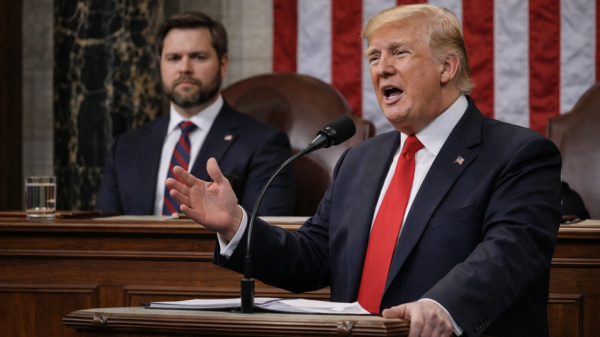The Federal Reserve is set to join the European Central Bank (ECB) and the rest of the world in gradually moving away from the aggressive rate hikes seen in the past few years.
This shift comes in response to signs of economic slowdown and reduced inflationary pressures.
For the first time since 2020, the Federal Reserve is expected to cut rates this upcoming Wednesday, with market participants predicting a potential 25-basis-point reduction.
The global rate-cutting cycle is gaining momentum, with major central banks converging on more accommodative policies.
Data suggests that half of the central banks in developed markets are already in the process of easing monetary policy.
As the US finally joins them, it is perhaps time to consider some bigger shifts in the narrative of global equities performance.
Global economies in preparation for a narrative shift
In recent years, monetary policy has diverged sharply among global central banks, driven by varying economic recoveries and inflation dynamics.
While the US Federal Reserve aggressively hiked rates in response to strong growth and rising inflation, central banks in Europe and Asia took a more cautious approach due to slower recoveries and persistently low inflation.
The US outperformed other economies due to robust fundamentals and capital flows.
As interest rates in the US soared, investors flocked to higher yields, causing a divergence between US monetary policy and that of other major economies.
Money market funds in the US ballooned to a record $6.32 trillion, fueled by attractive returns.
Meanwhile, Europe and Asia struggled to keep pace, and the carry trade – a popular strategy where investors borrow in low-interest currencies (like the Japanese yen) to invest in higher-yielding assets – further complicated the picture.
Now, as the US enters a rate-cutting cycle, this divergence is set to narrow.
The narrowing rate differentials between countries will reduce the attractiveness of strategies like the carry trade, where fluctuations in currency values play a significant role in investor decisions.
Greater convergence in monetary policy is also likely to result in more stable currency markets, with fewer swings in exchange rates.
Time to re-evaluate foreign markets?
The US stock market, particularly the S&P 500, has enjoyed years of strong performance, but as the global rate-cutting cycle progresses, foreign markets may offer more attractive opportunities.
Historical patterns show that during periods of easing, capital tends to flow out of US markets and into undervalued foreign assets.
The S&P 500 has already stopped outperforming Latin American markets over the past couple of years. Emerging markets and undervalued economies such as China may stand to benefit from this shift in capital flows.
China, in particular, presents a compelling case for investors.
Despite economic challenges and regulatory concerns, China’s markets appear significantly undervalued in comparison to the US If the US begins cutting rates, it could lead to increased investor interest in foreign assets, including Chinese stocks, which are currently trading at lower valuations.
Similarly, Latin America has been outperforming in recent years, and with the US slowing down, these markets could continue to attract capital seeking higher returns.
This shift in investment trends is not a certainty, but it mirrors historical precedents from the 1990s when foreign markets experienced a surge in capital inflows during US rate cuts.
However, caution is necessary as the global economic environment is still fraught with uncertainty.
What to consider moving forward
With global central banks shifting to lower interest rates, investors should consider moving beyond US markets.
Foreign markets, particularly in emerging economies like China and Latin America, may offer better value and growth potential as capital flows shift away from the US Diversifying into these markets could be a timely move given their relative undervaluation.
Additionally, the expected stabilization in currency markets may reduce the appeal of strategies like the carry trade, which relies on exploiting interest rate differentials.
Investors who previously benefited from currency volatility should now focus on equity or bond markets where growth prospects appear stronger.
Emerging markets, in particular, could stand to gain as US rate cuts ease their debt burdens and attract more foreign investment.
For those seeking long-term growth, these regions offer a promising opportunity, especially given their current undervaluation.
However, the situation remains fluid, and investors should approach this period with increased skepticism, while monitoring central bank actions and macroeconomic developments.
In this environment, diversification, agility, and a long-term perspective will be essential for navigating the global rebalancing of capital markets.
The post Is the US market about to lose its dominance as global banks start to converge? appeared first on Invezz




































